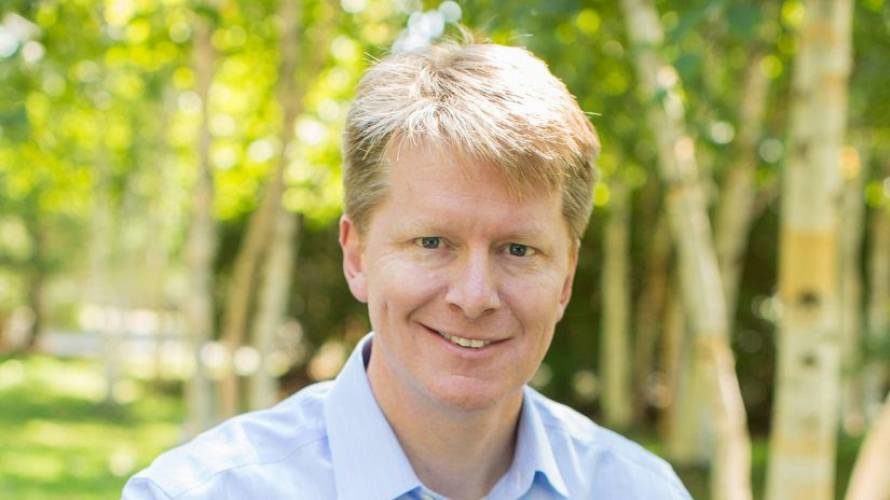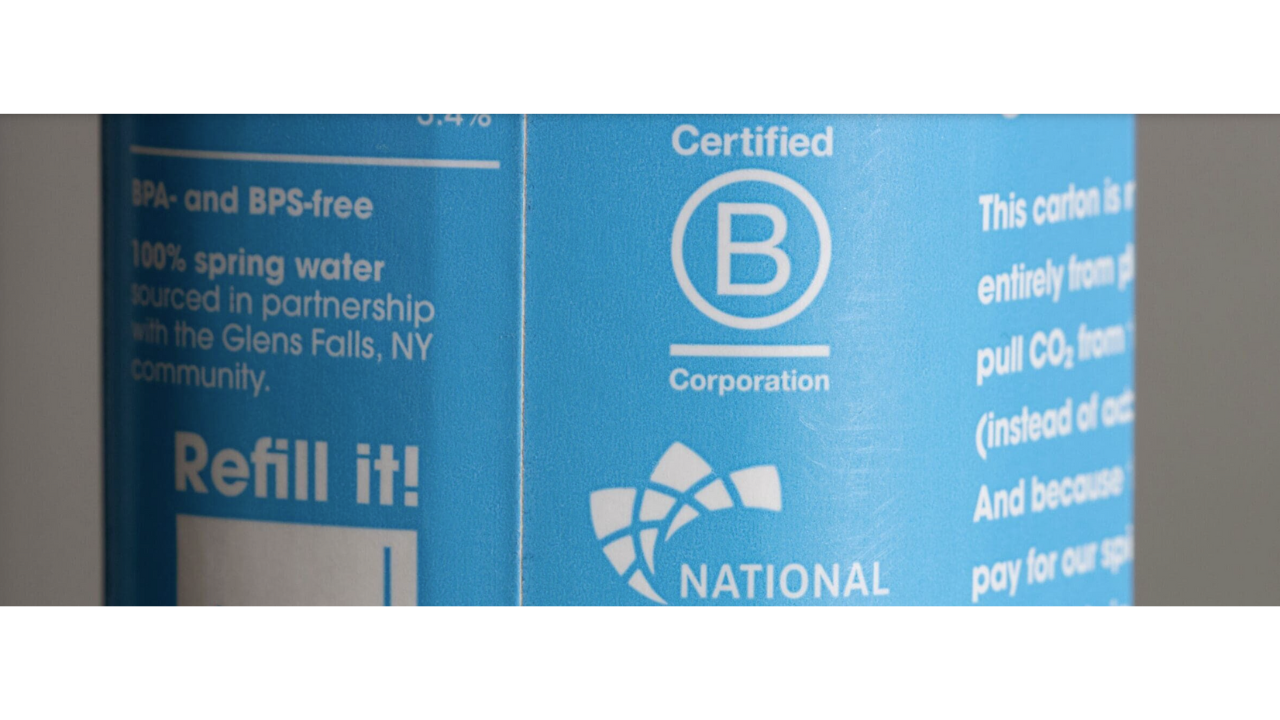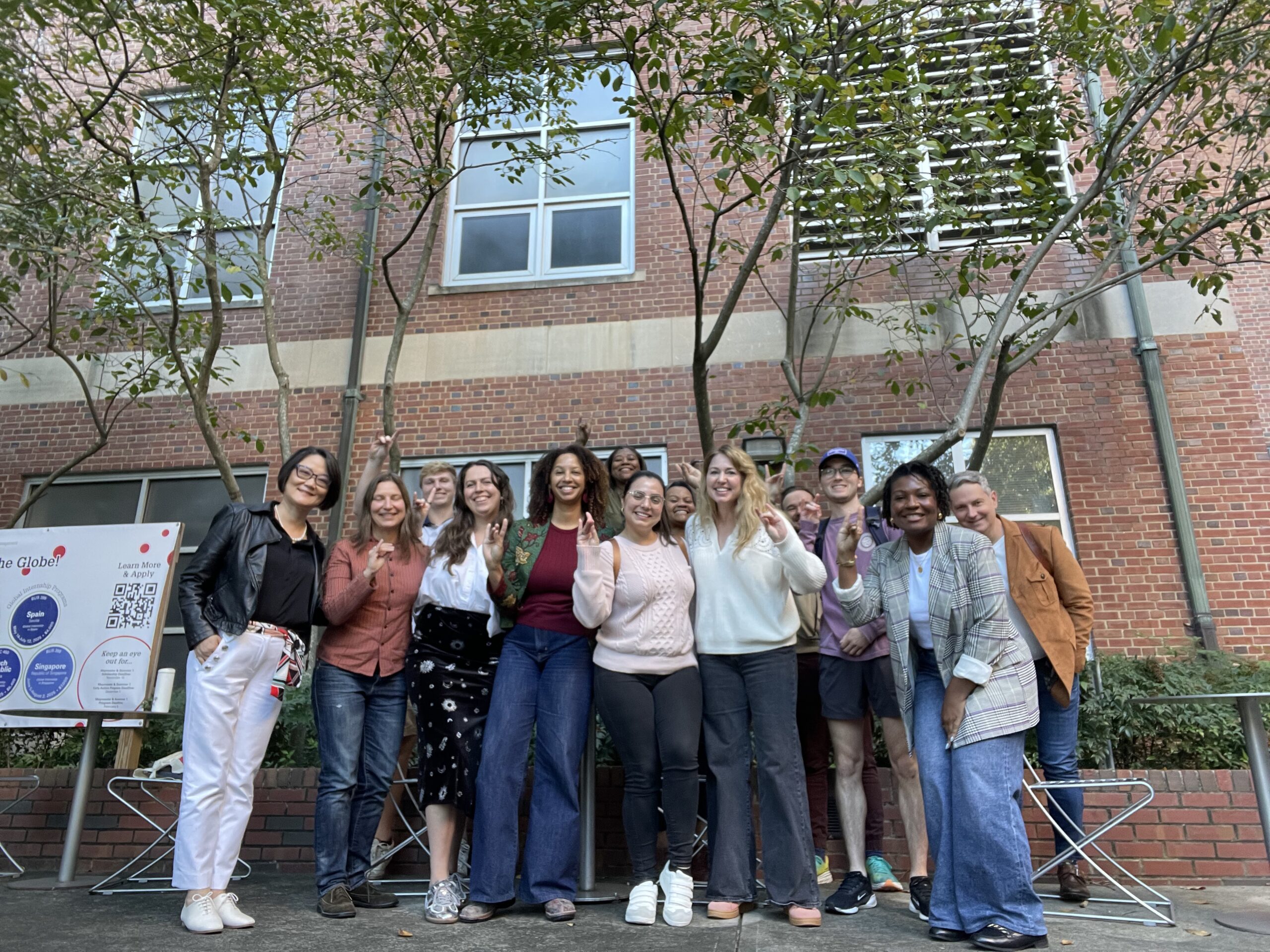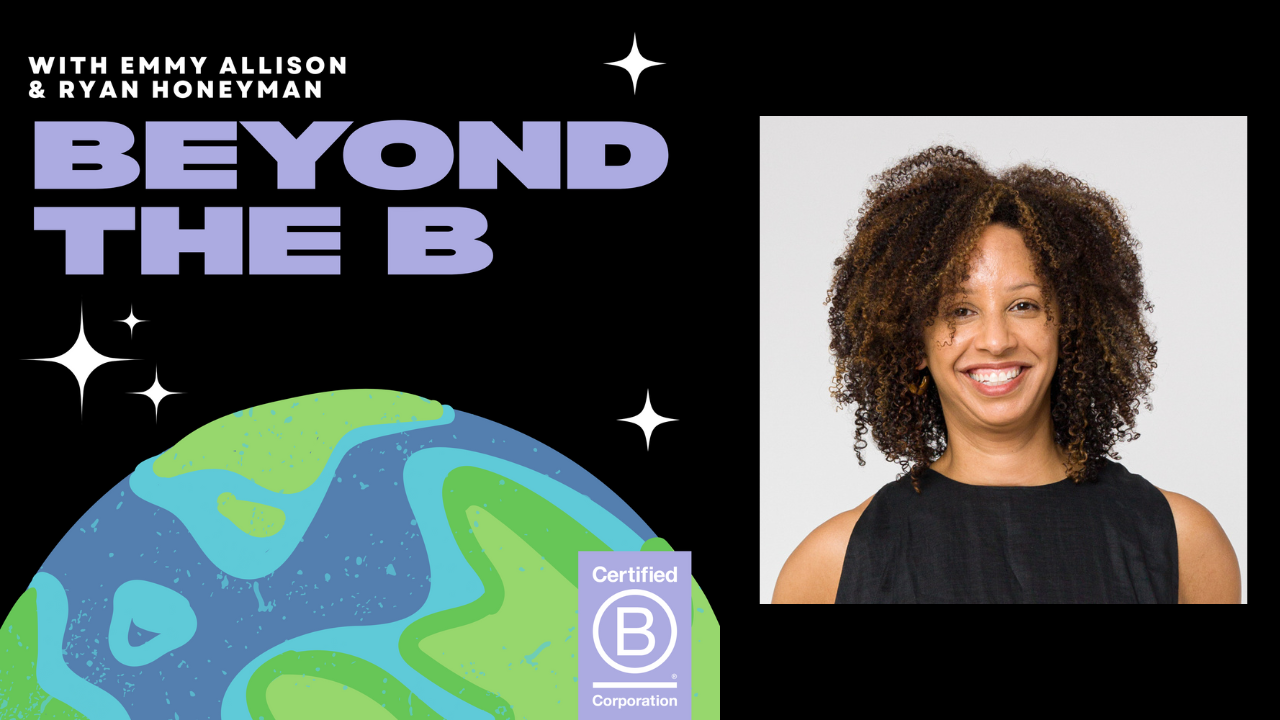John Replogle’s Career Starters: Jumbo Shrimp, A Beer Magazine, Good Mentors

Article written by Iman Usmani, BSC Associate and originally published February 24, 2017, by poolecollegecommunications
The NC State Poole College Executive Leadership Series brought John Replogle, president and CEO of Seventh Generation, to the Nelson Hall auditorium on February 15 for a conversational presentation about corporate leadership. (Listen to this podcast.)
A small gesture made while he was being introduced by Annette Ranft, Poole College dean, and Stephen P. Zelnak Jr. Chair hinted that this would be an atypical presentation. He sat quietly while Ranft recited his academic credentials – a bachelor’s degree from Dartmouth University and an MBA from Harvard Business School – and summarized his career path, which began in earnest with the Boston Consulting Group. But when she mentioned that Replogle had served as president and CEO of Burt’s Bees, he gave a silent shout-out to his former employer by pulling a tube of the company’s lip balm from his pocket and applying a bit of the product.
Replogle then proceeded, in an interview-style conversation with Ranft, to give the audience of about 300 students and guests from the community a candid overview of his progression from student to businessman and environmentalist. It all began with jumbo shrimp, he said.
Why jumbo shrimp? Replogle explained that, as an undergraduate student, he didn’t know what he wanted to study. He had started in pre-med, completed the pre-requisite courses and then went with a friend to study abroad for a year at the London School of Economics where he worked in the House of Commons.
When he returned to the U.S., he switched from biomedicine to history and government and then prepared for law school, took the entrance exam and applied. And that’s when the jumbo shrimp came into the picture. Replogle said he was invited one evening to go with friends to a corporate recruiting event for a firm. He initially declined, until his friend said they were serving jumbo shrimp. “I said ‘Wow!’ … A kid who grew up in Boston, a senior in college, half-starved …” So he went.
The firm was the Boston Consulting Group, he said, and “I had no idea what they did but I did know the shrimp were great. And as I chewed through those shrimp, I began to realize what they were talking about. It was incredible; it really intrigued me as someone who never quite figured out what I wanted to do until that point in time. I thought consulting offered a really unique opportunity for me to continue my education.”
He encouraged students in the audience to look at that first job out of college as a foundational time, “an incredible time of building, and force yourself outside of your comfort zone,” he said.
Replogle ended up working for the consulting firm for years afterward and stated that “they were some of the most important people” that he’s met. Reflecting on his experience at BCG, he advised the students in the audience to “go to a place where the people invest in you, build you, coach you,” rather than being swayed by compensation or perks. “Find a place that resonates with you, where you feel you can continue your education.”
 John Replogle, Seventh Generation, and Annette L. Ranft, Poole College dean and Stephen P. Zelnak Jr. Chair, in a discussion at the college’s Executive Leadership Series presentation.
John Replogle, Seventh Generation, and Annette L. Ranft, Poole College dean and Stephen P. Zelnak Jr. Chair, in a discussion at the college’s Executive Leadership Series presentation.
When Ranft asked how one prepares for a leadership role, Replogle said leadership is “something you develop. We’re not born with it. We all have gifts but we have to hone, refine them, develop what our own brand of leadership means to us,” he said. “Mentors are incredibly valuable, especially early in your career.” He said he found his mentors with his first employer.
Returning to his career path, Replogle said he received an opportunity to do “something really unusual.” A friend, neighbor, and mentor proposed a business development project: move to Hawaii with a set of blueprints, a budget and a six-month timeline to build, open and run a retail store. He accepted.
“That was a learning moment; I was so far outside my comfort zone,” he said, but his mentor was on the phone with him every morning, going over the plans, “and I learned a tremendous amount.”
He came back, continued to work for the Boston Consulting Group, and found his way into Harvard Business School, with support from his employer. While working on his MBA, Replogle and a friend started a magazine about beer, which ultimately had a part in his being offered a sales leadership roles at Guinness, working in the U.S., Great Britain, and then back again in the U.S.
These were crucible moments, made possible through the support of coaches and mentors, he said. His last year with the company was “perhaps one of the greatest years of learning … but it was a struggle,” he said. While working on his personal mission statement one day, he realized that he had focused, until that point, on advancing his career “and almost nothing for my kids. At that moment, I came of age.” After a conversation with his wife, “I realized it was time to leave Guinness and find where I could live in alignment with my mission and values … I realized I was out of alignment.”
Since then, Replogle has served as CEO of two B Corporations (B Corp), first Burt’s Bees and now in his current role as president and CEO of Seventh Generation, a company that was recently sold to Unilever, which also owns another B Corp, Ben & Jerry’s ice cream.
Replogle said he made the shift to benefit corporations because of his belief that a B Corp can be a force for good, saying they have “the fundamental alignment where their values and business practices are together.”
Elaborating, he said he believes that the way to fix major crises is through businesses and that the millennial generation is going to accomplish this change. Many of the capital structures now are short-term oriented, meaning that they are rewarded for “internalizing profits and externalizing costs,” he said. Companies, mainly those that are private, are able to take the leap and become more conscious of the effects of their decisions. Those who work for or with B Corps know that they might have to sacrifice short-term profits for a later reward.
Replogle elaborated on his message during his question and answer session with the audience. He concluded his conversation by offering the following points of advice for anyone – particularly students – looking to make an impact.
Choose opportunities that involve people that want to invest in you.
Choose jobs and internships that are with people who are going to pay attention to the work that you do. This will not only help you potentially gain a job for the future, as in Replogle’s case with the Boston Consulting Group but will also help you grow by maximizing your time during whatever opportunity arises.
Have a greater impact in mind; don’t just think short-term.
Positive social and environmental impact is not a short-term reward. For that reason, students who are interested in business sustainability should be patient with the impact of their actions and choose a career that is impact-oriented, not solely focused on compensation.
Mentors are the most helpful way to guide your career.
Replogle said that he still connects with his previous mentors, adding that “they can’t be underappreciated.” He also advises that “you go deep” when working with someone you admire. “You are reviewing your mentor just as much as they are reviewing you, so ask questions about how this person got the position they are in, who were their mentors, and so on,” he said.
Comment from the author
The best part of this event was that you could see the sincerity in John Replogle’s answers. It was evident that he wants to make an impact through his own work, and that now, he considers himself to be at a stage in his career where he is passing on his knowledge to the next generation, mentoring others just as many have mentored him because he truly believes in its importance. Evidence that these weren’t just empty words: He gave out his email address and encouraged everyone in the audience to connect with him on LinkedIn. This action showed he was sincere about wanting to help the future generation to be impactful leaders in business.
– Iman Usmani, Business Administration student at Poole College of Management and Business Sustainability Collaborative Associate
Anna Rzewnicki, Poole College Communications, collaborated on this article.
- Categories:


